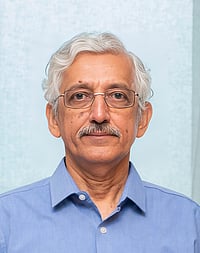The battle against plastics cannot be won without committed warriors wielding innovative solutions—and that is where the big hope lies. Across India, from Satara in Maharashtra to Pune, Bengaluru, Ahmedabad, Ayodhya, Delhi and Coimbatore, a constellation of innovative start-ups is lighting up India’s path to a plastic-free future.
From this large and growing group of change makers, we spotlight a representative selection of 10 innovative start-ups that reflect the diversity of ideas and the wide geographic spread of India’s fight against plastic. Each, in its own way, is reshaping our understanding of sustainability and consumption.
TGP Bioplastics | Satara, Maharashtra
From starch trials to certified success stories: TGP Bioplastics is rewriting the future of packaging—starting from the ground up. Founded in Satara, a small town nestled in the Western Ghats in Maharashtra, by Indrajeet Nikam, Tejas Zagade, and Karan Chavan, the company creates starch- and cellulose-based plastic alternatives. What began in 2018 as a lab experiment now powers certified compostable films, bags, and even 3D printing filaments. In February 2019, the four innovators tested thermoplastic starch films in Bhubaneswar. “Every scientist was telling us that the trial was going to be a failure, but it was a success, leaving everyone awestruck, including us,” recalls Nikam.
Buoyed by funds from the Maharashtra government, the United Nations Industrial Development Organization (UNIDO), Atal Innovation Mission (AIM), and the Department of Science and Technology (DST), TGP Bioplastics took its products to market in November 2023.
“By the end of 2020, funding from the Maharashtra government helped us purchase lab equipment to run tests, after which we received financial support from UNIDO, Atal Innovation Mission and DST for taking the research and commercialisation forward,” says Nikam. The ISO-certified packaging is now used as much by MNCs as by MSMEs and farmers. “When a farmer recently asked us for more mulch films for his upcoming crops, we felt a deep and inimitable sense of satisfaction,” Nikam adds. With a new 800 TPA plant on the horizon, the goal is clear: “Going forward, we want to enable industries to switch to eco-friendly packaging without cost being a major barrier.”
Bare Necessities | Bengaluru, Karnataka
Zero-waste living, one bamboo toothbrush at a time: Inspired by Bea Johnson’s zero-waste ethos, Sahar Mansoor turned a personal quest into a public movement. Bare Necessities brings low-waste living into the mainstream with products like plant-based shampoo bars, compostable packaging and bamboo toothbrushes. “We don’t think about plastic, which takes 700 years to start decomposing and leaches out harmful chemicals into soil and water for even five minutes,” says Mansoor. Bare Necessities started with the purpose of changing just that. “I wanted to make it easy and accessible for people looking to consume more mindfully and to encourage others to produce less waste,” she explains.
Launched in 2015, the brand has already sold over 2.4 lakh sustainable products made using ethically sourced and locally available ingredients. In doing so, it has diverted about 7 crore single-use plastic units from ending up in landfills. Moreover, its education initiative, Bare Learning, has directly impacted about 4 lakh individuals. UNESCO recognises the online courses run by the startup as a Climate Action Resource, with over 1.2 lakh enrollments.
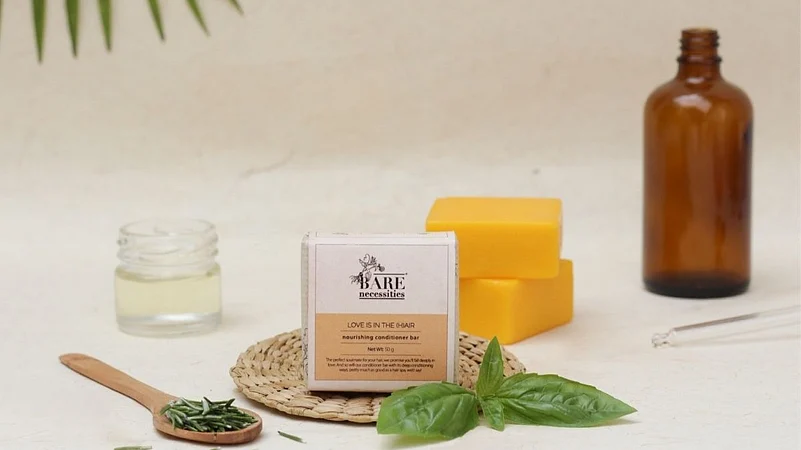
EcoKaari | Pune, Maharashtra
Handlooms meet high-impact recycling: At EcoKaari, discarded plastic wrappers and old cassette tapes are transformed into vibrant textiles. Founded by Nandan Bhat, this Pune-based social enterprise weaves waste into handbags, décor and stationery—using charkhas and handlooms. “The inspiration behind EcoKaari stemmed from witnessing the dual challenge of plastic waste pollution and the lack of sustainable livelihood opportunities for artisans. We wanted to address both by upcycling plastic waste into handcrafted products,” says Bhat.
Their work was featured in the August 2024 episode of Mann Ki Baat. “The recognition not only validated our efforts but also amplified the voices of our artisans and the message of sustainability,” he adds. Collaborating with designers like Gaurav Gupta and getting its products featured at Lakmé Fashion Week was another significant milestone. “Every time a customer shares how our product helped them understand the value of upcycling, or when an artisan tells us their income is supporting their child’s education—we are reassured that we are on the right path.”

Bambrew | Bengaluru, Karnataka
Packaging that gives plastic a run for its money: What began with one turtle’s suffering has scaled into one of India’s largest eco-packaging solutions. Vaibhav Anant left his corporate job in 2018 to launch Bambrew, transforming bamboo, seaweed, and agricultural waste into compostable packaging used by Amazon, Nykaa, Bata, and hundreds more. “We serve many customers, but when an artisan shares how our innovation brings steady work to her village, it reaffirms what I sincerely believe. We aren’t just running a business; we are shaping India’s climate future from the grassroots up,” says Anant.
Their products are ISO-, FDA-, and CPCB-certified, and they decompose within 130 days. “It’s not just about eliminating plastic,” Anant says, “it’s about building livelihoods—and a climate-positive India.”
Through its energy-efficient practices, Bambrew currently saves more than a million trees from being cut, 20,000 tonnes of single-use plastic, 25,000 tonnes of carbon dioxide, 4.3 million kWh of electricity, and 2.5 lakh barrels of oil.
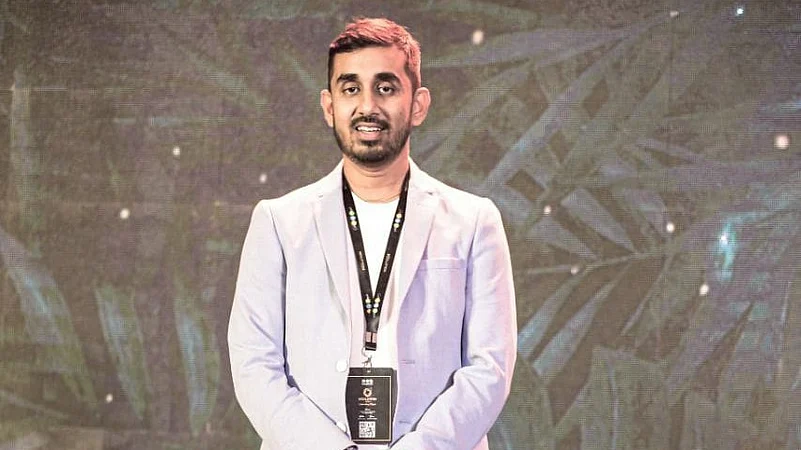
PolyCycl | Chandigarh
Cracking the plastic code with chemistry: Amit Tandon left Silicon Valley to tackle one of Earth’s thorniest problems: what to do with unrecyclable plastic. “Over time, that image became a recurring question: could waste plastics be given another life in a way that made both ecological and economic sense?” he says.
He found most plastic recycling methods were costly, hard to scale, and failed to deliver on claims like “zero-emission” or “plug-and-play” when scrutinised. “The gap between technical promise and practical performance is what eventually pushed me to take the entrepreneurial leap,” says Tandon.
PolyCycl’s small but focused team built a patented pyrolysis system that converts low-grade plastic into high-value chemical feedstock in a stable and cost-efficient manner. “Achieving what was long considered technically difficult gave us a real sense of validation,” he adds. With eight international patents and L&T Technology Services as a key partner, Tandon affirms: “We don’t chase green buzzwords—we chase real-world performance.”
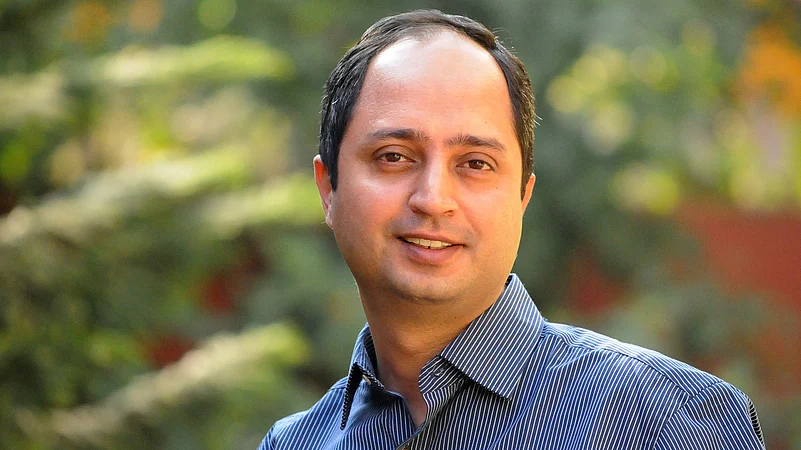
Ishitva Robotic Systems | Ahmedabad, Gujarat
Turning waste sorting into smart tech: Founded by Jitesh Dadlani and Sandip Singh, Ishitva uses AI to automate waste sorting in India. “I had seen automation and robotics in domains such as warehouses and car manufacturing, among others. Yet in India, waste was still being sorted by hands—a dirty, dull, and dangerous job often done by the elderly and even children, sometimes on a heap of waste,” says Dadlani.
Dadlani, with experience in software architecture, open-source systems, and industrial automation, left the corporate world to take on the plastic challenge. Their AI-powered SUKA sorter identifies and separates plastic by polymer, colour, and application. “The idea was to develop a technology capable of sorting high volume with precision, at the same time being cost-effective with the quality standard for India.” Their ishitvAI platform keeps improving—making recycling smarter, safer, and faster.
Chuk | Ayodhya, Uttar Pradesh
Turning your regular plastic plates into compostable ones: Launched in 2017, Chuk makes compostable and biodegradable tableware from sugarcane residue (bagasse). A subsidiary of KK Jhunjhunwala’s Yash Pakka, it came into existence after three years of efforts spearheaded by Ved Krishna, who envisioned an eco-friendly alternative to single-use plastic.
He says, “We wanted to make a positive impact on the planet. Although we were in the packaging industry, our contribution felt limited. So, we began exploring sustainable, scalable, compostable, and health-safe solutions in the food service and packaging space.”
The products are designed to decompose within 60 to 90 days. It has a presence in more than 45 countries, including the US. It has partnered with leading companies like Haldiram’s, Amul, and Bikanerwala, among others. “Meeting Pankaj Agarwal, the COO of Haldiram’s, reinforced our belief when he committed to switching all of their food service ware to compostables,” says Krishna.
ScrapUncle | Delhi
Digitising the job of a traditional kabadiwala: Inspired by the rapid digitisation of everyday services during his college years, Mukul Chhabra decided to take scrap collection online. He began his journey by learning the trade first-hand, hiring, and even living with local kabadiwalas.
ScrapUncle, thus, started with an Uber-like model, partnering with local kabadiwalas to collect scrap. However, there was a gap in the service quality. Chhabra soon realised it wasn’t just about digitisation—professionalism, fair pricing and grooming of the kabadiwalas were equally crucial. “Properly trained, some of them work as supervisors and managers, earning ₹40,000–60,000 a month,” Chhabra says.
“Everyone told me that collecting recyclables from individual households wouldn’t make economic sense,” he says. But it all worked out. “One day, I saw 30 of our electric pick-up trucks parked together, packed to the brim with recyclables by doing just 7–8 small household pick-ups in a day. Watching around 75 of our pickers and helpers, most of whom come from informal backgrounds, it hit me. That moment assured me that we were on the right path.”
Based in Delhi, the online platform enables users—both households and businesses—to schedule doorstep pick-ups for various types of recyclable waste, including plastics, through a mobile app or website. The plastic scrap collected is sent for responsible recycling, ensuring plastic waste doesn’t end up in landfills or water bodies. Some of its customers include leading brands like Godrej, Tata Steel, and Urban Company.
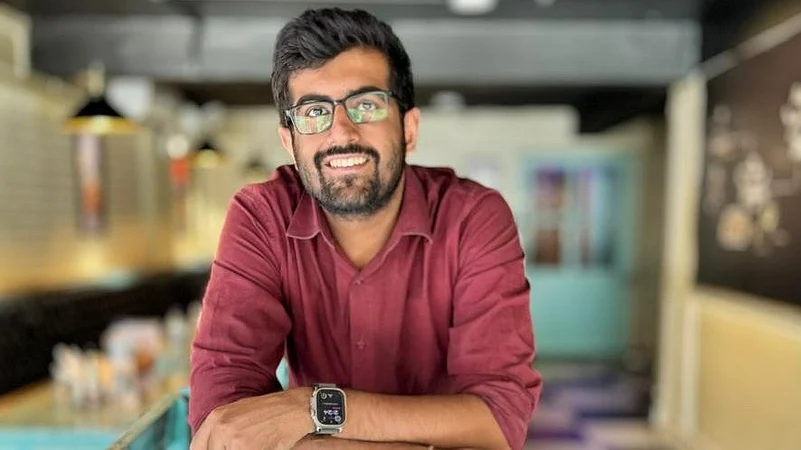
BlissPads | Coimbatore, Tamil Nadu
Turning to nature for comfort: Fashion technology students Niveda Ravikumar and Gowtham Soundararajan, working together on their final-year project, conceived the idea of creating sanitary napkins from kenaf. “We wanted to work on a project that solves a real-time problem,” says Ravikumar. While experimenting, they discovered the fibre’s ability to absorb and its natural antimicrobial properties. “Since we had a strong expertise in natural fibres, we thought replacing plastics with natural materials would be the best option,” she says.
Launched in 2018, BlissPads is a brand that benefits both the environment and women. Ravikumar says, “One of the best feedbacks we received was from a bed-ridden girl’s mother who told us about how comfortable her daughter felt using our pads.”
It has now grown into a 50-member team in Coimbatore, Tamil Nadu. Operating under the umbrella of Green Delight Innovations, its products are plastic-free, chemical-free, and FDA-approved.
Econscious | Delhi
Turning trash into treasures for everyday life: A Delhi-based startup founded by engineering graduates Sonal Shukla and Vaibhav Verma, Econscious began its journey during the COVID-19 pandemic with the goal of transforming plastic waste into functional products. Over the past four years, it has evolved into a full-fledged recycling and manufacturing set-up, processing around 12–15 tonnes of plastic waste every month. Making products ranging from furniture and dustbins to planters, pots, and coasters, the company has diverted more than 40,000 kgs of plastic. It has completed CSR projects for organisations including Nestlé, ITC Limited, Whistling Woods International, The American Centre, and HCL Foundation, among others.
At the recent Mahakumbh held in Prayagraj, Uttar Pradesh, Econscious designed and installed approximately 1,000 changing rooms for women made from recycled plastic boards. Coca-Cola India funded the project as part of its sustainability campaign.
Going forward, the company aims to significantly increase its processing capacity to 50 tonnes per month within the next year and expand the range of plastic types it recycles, including more complex forms such as PET.





















